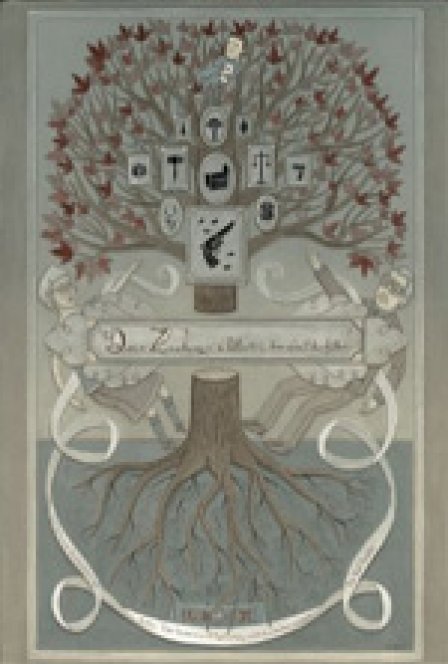Dear Zachary is a documentary full of victims. It tells the story of a murdered man -- Andrew Bagby -- and his friends, and his family, and his unborn child, and the unbelievably wide gulf his absence leaves in their lives. Most frustratingly, it details the widening of that gulf as the system fails them all.
Dr. Andrew Bagby is murdered November 5, 2001 in Latrobe, Pennsylvania, presumably by sometime-girlfriend Dr. Shirley Turner. As police gather evidence, Turner quickly flees to St. John’s, Newfoundland, where she announces her pregnancy with Andrew’s child. Andrew’s parents, the tireless, dignified David and Kate Bagby, pack up their lives and move to St. John’s in order to challenge Turner for custody of the child while the Canadian courts prepare to extradite her back to Pennsylvania for trial. But Canadian law is slow, and the months turn into years.
Despite the fact that Turner is accused of a premeditated first-degree murder, she is surprisingly released on bail. Once her and Andrew's son is born -- Zachary -- the Bagbys have the unenviable task of dealing with their son's suspected killer in order to see their only grandchild.
However, Dear Zachary doesn't focus on Turner, but is instead shaped by those affected by the murder. It'd be a mistake, then, to compare Dear Zachary to other documentaries with which it shares superficial similarities. Certainly, it charts a legal nightmare like both The Thin Blue Line, Errol Morris' brilliant procedural, and Paradise Lost: The Child Murders at Robin Hood Hills, Joe Berlinger and Bruce Sinofsky’s take on miscarried justice. And director Kurt Kuenne has the technical and narrative strengths to layout events and chart the case’s development, offering repetitive visual cues when detailing the ups and downs of wading through a legalistic miasma. But those strengths serve to buttress the more human aspects of the film, as unbearable and frustrating and dark as they may sometimes be.
Kuenne, one of Andrew’s best friends since childhood, maps the development of the case in a stop-and-start manner. It's certainly not about motive or finding the murder weapon; the details of the case are important only insofar as they affect the victims. And the effect of Andrew’s murder is huge. He is unbelievably popular. One after another, friends reveal their wish that Andrew would have been the best man at their wedding. Patients at the small family practice where Andrew interned reveal that he diagnosed cancers in time to treat them, while coworkers marvel in his ability to connect with patients.
But it is the elder Bagbys who hold the heart of the film. It's not just that they were forced to bury their son, but they were also forced to forge a relationship with their son's killer in order to participate in their grandson’s life. Their sacrifices are unjust and unreal. As we learn about them and hear their story, we get an inkling of what it's like to make those sacrifices and how their bond allows them to persevere. There is a moment late in the film when calm, cool, rational Mr. Bagby explodes in rage, a helpless, scared, deserved rage, but then quickly returns to comforting his wife. My heart sinks, my eyes well up, and you can't help but want to console them.
The story is difficult and upsetting at times, and were Kuenne not so close to the Bagbys and the film not so personal, it might come off as exploitative and crassly didactic. But as Kuenne leads us into the horrid situation in which the Bagbys find themselves, we can see why Andrew is so loved. It's difficult to characterize the finished film and the journey it takes you on. Phrases like “love letter to a departed friend” or “family tragedy” seem so trite and small in the face of the bare emotion on screen and the white-knuckled frustration it evokes. Simply, Dear Zachary is an amazing documentary, detailing a baffling crime and featuring people I didn't think could exist beyond fiction. Indeed, the events in the film are so tragic I feel guilty praising it so highly, but my respect for the Bagbys and their struggle make me question whether I'm praising it highly enough.

